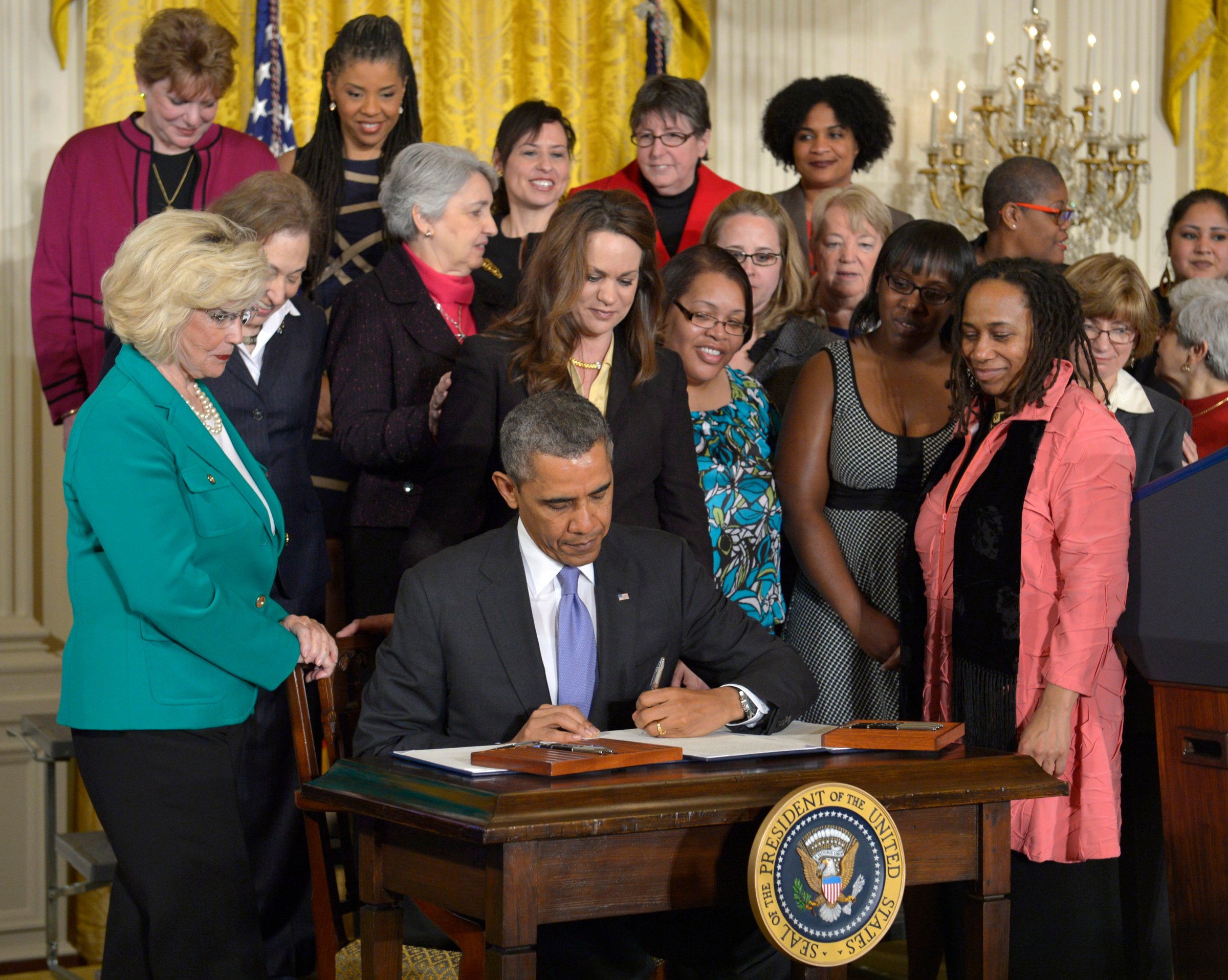
The Democratic strategy this cycle has been to highlight, and to some degree demagogue, every inopportune, untactful or flat out sexist comment any Republican utters. Last week it was Supreme Court Justice Antonin Scalia saying that “one of the things that upsets me about modern society” is “ladies” using “the F-word.” This week it’s a GOP senatorial candidate in South Carolina saying that women are to blame for divorce, even if men cheat, and that it’s “abominable idolatry” when women love their kids more than their husbands.
Granted, the GOP does seem to have a higher quotient of men who utter disturbing things. But on the whole, it has to be said that the Republican Party doesn’t believe in sexism. Or Rape. And, yes, they do think that men and women should get paid equally for equal work. And they’re sick of getting labeled by their lowest common denominators.
Now the GOP is fighting back by pointing out some of the inopportune, untactful and flat out sexist things some Democrats are saying and doing.
As I pointed out earlier this week (here and here), some qualified Republican female candidates are having a tough time getting help from the establishment. Well, there are also some Democrats experiencing the same problem, and Democrats do tend to endorse in primaries much more than Republicans. In Hawaii, it was former Sen. Daniel Inouye’s dying wish that Coleen Hanabusa be named to fill out the remainder of his term. But in a move that outraged Inouye supporters, Hawaii Gov. Neil Abercrombie appointed his deputy, Brian Schatz, to the seat. Now Schatz and Hanabusa are locked in a tight primary for a full term. Schatz has been endorsed by President Barack Obama and the Democratic Senatorial Campaign Committee, which works to elect Democrats to the Senate. But Hanabusa has the backing of Emily’s List, which helps elect pro-choice women, and the race is a dead heat.
Likewise in California’s 31st district, the Democratic Congressional Committee, which works to elect Democrats to the House, has endorsed Redlands Mayor Pete Aguilar over Eloise Gomez Reyes, who also enjoys the support of Emily’s List. Noticeably, the DCCC moved the seat, currently held by retiring GOP Rep. Gary Miller, into its “Red to Blue” group on its website without saying which Democrat might carry the day.
Finally, the RNC gave three other examples of female challengers being looked over. The DCCC has endorsed Kevin Strouse over Shaughnessy Naughton, in the Pennsylvania Eight congressional district Democratic primary to challenge GOP incumbent Rep. Michael Fitzpatrick. The DCCC also excluded candidate Marisa DeFranco, who is challenging incumbent Democratic Rep. John Tierney in Massachusetts, from a poll of the district. And the Democratic National Committee had no comment when former Florida Senate minority leader Nan Rich appealed to the Broward Democratic Executive Committee to debate former and would-be future governor Charlie Crist in her bid for the Democratic nomination for governor. The Broward board turned her down. To be fair, Emily’s List did not endorse any of these women, generally a requirement to be taken seriously as a pro-choice female candidate on the left. And at some point, every local party draws a line at also rans.
The DCCC points to its aggressive efforts to recruit women, noting that for the first time in committee history, women make up more than 60 percent of the initial “Red To Blue” list of top tier candidates in the country.
The Democrats are currently losing in generic head-to-head polls, so any day they’re not talking about Obamacare is a good day for them. Thus the focus on women’s issues in the hopes that if they can drive out unmarried women in the same numbers as they turned out in 2012, they will keep the Senate. According to the Center for American Women in Politics at Rutgers University, women voters carried the day in seven Democratic races. “The composition of the United States Senate in the 113th Congress would look very different if it were not for the votes of women in these races,” says Susan J. Carroll, senior scholar at CAWP. “It’s clear that in a significant number of U.S. Senate races, women and men preferred different candidates and women’s preferences prevailed.”
At the same time, Republicans won women voters in 2010, helping them flip the House and gain six Senate seats. So, the race for the women’s vote is on, and it would seem to be a race to the bottom on both sides. “The challenge is that in some key Senate race states, like Colorado, Iowa, Michigan and North Carolina, this theme might work better than in other places like Alaska, Arkansas, Kentucky and Louisiana. It might not work quite as well as many non-minority women are also fairly conservative,” says Charlie Cook, who runs the non-partisan Cook Political Report, which tracks Senate races. “This isn’t a science where you can carefully calibrate things.” In other words, women aren’t a monolithic vote and what appeals to some, turns others off: a lesson both parties should note.
More Must-Reads From TIME
- The 100 Most Influential People of 2024
- The Revolution of Yulia Navalnaya
- 6 Compliments That Land Every Time
- What's the Deal With the Bitcoin Halving?
- If You're Dating Right Now , You're Brave: Column
- The AI That Could Heal a Divided Internet
- Fallout Is a Brilliant Model for the Future of Video Game Adaptations
- Want Weekly Recs on What to Watch, Read, and More? Sign Up for Worth Your Time
Contact us at letters@time.com